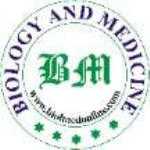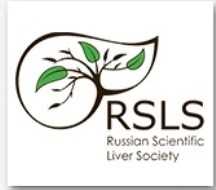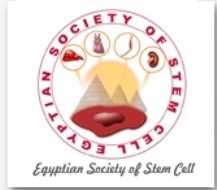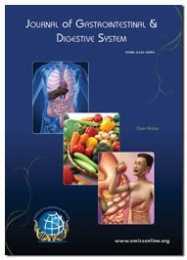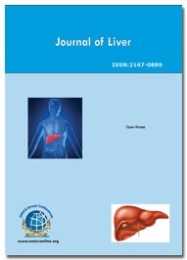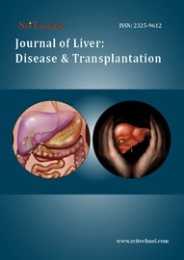OMICS Group International proudly announces the commencement of its “World Congress on Hepatitis” which is going to be held during July 20-22, 2015 at Florida, USA. The conference highlights the theme “Raising global awareness on hepatitis and fighting the stigma surrounding the disease”. The event offers a best platform with its well organized scientific program to the audience which includes interactive panel discussions, keynote lectures, plenary talks and poster sessions on the topics Hepatitis Care and Cure, Diagnosis & Liver Pathology/ Case Studies, Assessment of Liver Diseases, Liver cancer and Hepatocellular carcinoma, Advanced Management of Liver diseases, Clinical Liver Transplantation and Liver Surgery, Advancement in new drug discovery for treatment of hepatitis, Advance Technologies for the treatment of hepatitis and Liver diseases, Current research in Hepatology. The conference invites Hepatologists, Gastroenterologists, Pharmacists, Biochemist, Toxicologist, Academicians, Clinicians, Researchers, Infectious Disease Specialists, Health care professionals, students, business delegates and Young researchers across the globe providing a better podium, interconnecting the latest research, technological developments in the arena as well as therapeutic aspects. Participating at World Conference on Hepatitis will be an excellent opportunity to meet eminent personalities in the fields of Hepatology and learn about the latest technological advancements.
OMICS Group International organizes 300+ Conferences Every Year across USA, Europe & Asia with support from 1000 more scientific societies and Publishes 400+ Open access journals which contains over 30000 eminent personalities, reputed scientists as editorial board members.
As per the recent investigations, Hepatitis drugs and liver transplantation have a market value of $130 billion worldwide. The funding allotted for research purpose across the globe in the field of Hepatology and liver diseases is around $9.8 billion. According to WHO nearly 500 million people have chronic viral hepatitis worldwide. More than 1 million people die each year from causes related to viral hepatitis, commonly cirrhosis and liver cancer. Approximately 1 in 12 persons worldwide are living with chronic viral hepatitis. Viral hepatitis is among the top 10 infectious disease killers and the leading cause of liver cancer and cirrhosis Realizing the importance, OMICS Group is organizing World Congress on Hepatitis in Florida, USA this year paving way for sharing views and research, which will help the scientific world to adopt solutions for the problems of critical importance.
Track 1: Hepatitis : Care and Cure
Treatment of Hepatitis is on the cutting edge of medicine. Hepatitis B virus infection (HBV) has been recognized as a major health problem worldwide and Hepatitis C virus (HCV) infection is the most common chronic blood borne infection in the United States. Viral hepatitis treatment depends on how active the virus is in your body. Viral hepatitis is the most common cause of hepatitis worldwide. Other causes of non-viral hepatitis include alcoholic hepatitis and autoimmune hepatitis.
Track 2: Diagnosis and Liver Pathology / Case Studies
Screening for Liver diseases has been advocated with the intention of intervening to halt its progression. Abnormal liver tests are those that measure synthesis of proteins made by the liver (albumin, clotting factors) or the liver's capacity to metabolize drugs. Chronic infection with hepatitis C or hepatitis B virus can lead to long-term liver damage including liver fibrosis and cirrhosis. The impact of diagnosis of hepatitis C virus on quality of life is worse in patients aware of their viral status compared with individuals unaware of their viral status. Hepatitis, hepatotoxicity, liver Injury, fatty liver, cholestasis and metabolic disorders are some of the drug induced liver diseases.
Track 3: Assessment of Liver Diseases
Liver diseases are caused by metabolic, genetic drug induced and due to autoimmune diseases. Hepatic coma also known as hepatic encephalopathy is a metabolic abnormality caused by accumulation of toxic substances in the bloodstream that are normally removed by the liver. Haemochromatosis is a genetic disorder caused by accumulation of iron in the liver. Non-alcoholic fatty liver disease is a drug induced liver disease caused by accumulation of extra fat in liver cells that is not caused by alcohol, whereas Alcoholic liver disease is due to overconsumption of alcohol. Primary biliary cirrhosis is an autoimmune disease of the liver in which the bile ducts in liver are slowly destroyed.
Track 4: Liver Cancer and Hepatocellular Carcinoma
Hepatocellular carcinoma is a primary malignancy of the liver and is the most common type of Liver cancer. The production of cancer cells in the Liver is called hepato-carcinogenesis. Research is going on to develop drugs that builds liver cancer immunity and also identifying and understanding cancer stem cells and their properties to develop effective anti-cancer therapies.
Track 5: Advanced Management of Liver Diseases
Hepato-biliary diseases include liver diseases and biliary diseases. There has been a lot of progress made in treating liver disease. In Liver disease, the innate cells recognize pathogen invasion initiate signaling cascades that trigger the release of factors promoting the inflammation. Liver’s response to injury by the deposition of new collagen results in liver fibrosis. Over time this process can result in cirrhosis of the liver.
Track 6: Clinical Liver Transplantation and Liver Surgery
Liver transplantation is the only treatment possible option for end-stage liver disease and acute liver failure. Research is going on development of artificial liver support, a technology based on artificial materials for partial replacement of liver function. Cholangiocarcinoma is a relatively rare form of cancer that originate in the bile ducts and Hepato-pancreatobiliary surgery consists of the general surgical treatment for benign and malignant diseases of the liver, pancreas, gallbladder, and bile ducts. Liver surgery comprises various operations of the liver for different disorders. The most common operation performed on the liver is a resection (removal of a portion of the liver).
Track 7: Effect of Industrial Toxic Pollutants on Liver
There are many Liver diseases that are due to exposure to toxics, chemicals and wastes. Exposure to toxic chemicals causes Toxic hepatitis, an inflammation of the liver caused by chemicals and also exposure to waste collection is also a potential risk factor for Hepatitis A virus infection. Municipal waste collectors from waste handling industry are prone to develop HAV infection. Smoking/eating/drinking during waste collection could be the mode of HAV transmission.
Track 8: Advancement in New Drug Discovery for Treatment of Hepatitis
There is much more advancement in the discovery of drugs for the treatment of hepatitis. The new drugs include protease inhibitors, polymerase inhibitors, nucleotide analogs and guanosine analogs. FDA (Food and Drug administration) has approved combination therapy sofosbuvir plus simeprevir forgenotype 1 chronic hepatitis C infection treatment. Sofosbuvir, a polymerase inhibitor showed it efficacy in the treatment of genotype 2 and 3 chronic hepatitis C infection. Another ribonucleic analog, Ribavirin has showed its effectiveness in the treatment of chronic Hepatitis E infection.
Track 9: Advance Technologies for the Treatment of Hepatitis and Liver Diseases
Ultrasound-based transient elastography is the advanced technology more commonly used ultrasound-based technique for the assessment of chronic liver diseases. It is also used to predict complications in patients with cirrhosis. Due to side effects of interferon regimens for treatment hepatitis, interferon free regimens were developed for chronic HCV genotype 1 infection. Protease inhibitor, simeprevir is effective in the treatment of hepatitis C virus recurrence after liver transplantation. Recent investigations revealed that Nonselective beta blockers in patients with cirrhosisand spontaneous bacterial peritonitis are contraindicated, as they are leading cause of death.
Track 10: Current Research in Hepatology
Currently lot of research is going on Liver diseases caused by genetic and metabolic disorders, but yet to confirm in abroader studies. Intrahepatic cholestasis of pregnancy during the third trimester is an important indication to investigate the hepatitis C virus status of the patient. Poly cystic liver disease is a genetic disease in which patients have cysts only in the liver.





